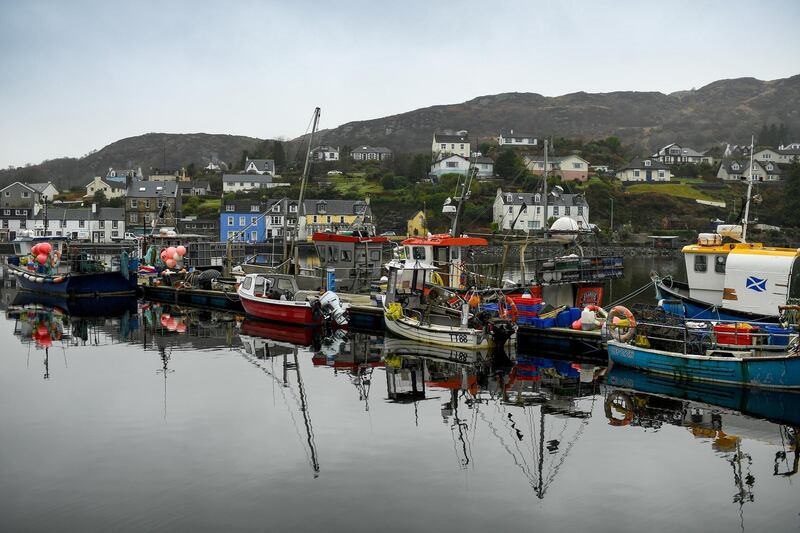Fish are happier being British after Brexit, Conservative MP Jacob-Rees Mogg said on Thursday.
The Tory politician’s comments will anger Scottish fishermen who blame red tape for the recent collapse of seafood exports to Europe.
Politicians in Westminster say the issue is the result of "teething problems" and say it will be sorted out soon.

“What is happening is that the government is tackling this issue, dealing with it as quickly as possible, and the key thing is we've got our fish back,” Mr Rees-Mogg said in Parliament.
"They're now British fish, and they're better and happier fish for it."
Scottish fishing trawlers are reportedly travelling 48 hours to Denmark where they can get a better price for their catch.
Britain’s food minister, George Eustice, told Parliament his staff held meetings with Dutch, French and Irish officials to try to "iron out some of these teething problems".
Fishermen, meanwhile, threatened to dump tonnes of rotten shellfish near Downing Street in protest.
Jamie McMillan, of Scotland’s Loch Fyne Langoustines seafood company, said “the fishing industry has been made a fool of” by the government and demanded politicians “sort it out”.
"We can't get our product to the EU market because of red tape," Mr McMillan said in a video on social media.
“If Scottish exporters can’t get their product to market next week, we will be at the gates of Westminster and we’ll be dumping our shellfish on your doorstep, rotten."
The disruption, and comments by various ministers downplaying the issue, angered Scottish National Party politicians who did not support Prime Minister Boris Johnson's Brexit project and want a second independence vote.
An opinion poll published on Thursday found the SNP is on course to win a record majority in elections for Scotland's devolved parliament in May, which would signal a new push for independence by Scottish First Minister Nicola Sturgeon.
But a spokesman for Mr Johnson, who has repeatedly refused to grant Scotland another vote on the issue, said the government was looking at ways to compensate those affected by "temporary issues".
The government says it gave the Scottish government almost £200 million ($273.6m) to help minimise any disruption, which ministers say they flagged for months before Britain ended a transition period with the EU on December 31.
Liberal Democrat Alistair Carmichael, who represents Scotland’s Orkney and Shetland islands, said the problems were the government’s fault.
“For years this government has promised our fishing industry a sea of opportunity, but today our boats are tied up in harbour, their propellers filled with red tape manufactured in Whitehall,” Mr Carmichael told Parliament on Thursday.
Many British fishermen backed Brexit because it promised a chance for the UK to leave the EU’s complex system of quotas and regain control over who is allowed to fish in British waters.
Fishing rights became a major sticking point in the trade negotiations that followed the UK’s political departure from the bloc in January 2020, as European nations sought to keep access to waters in which they have fished for decades or centuries.








